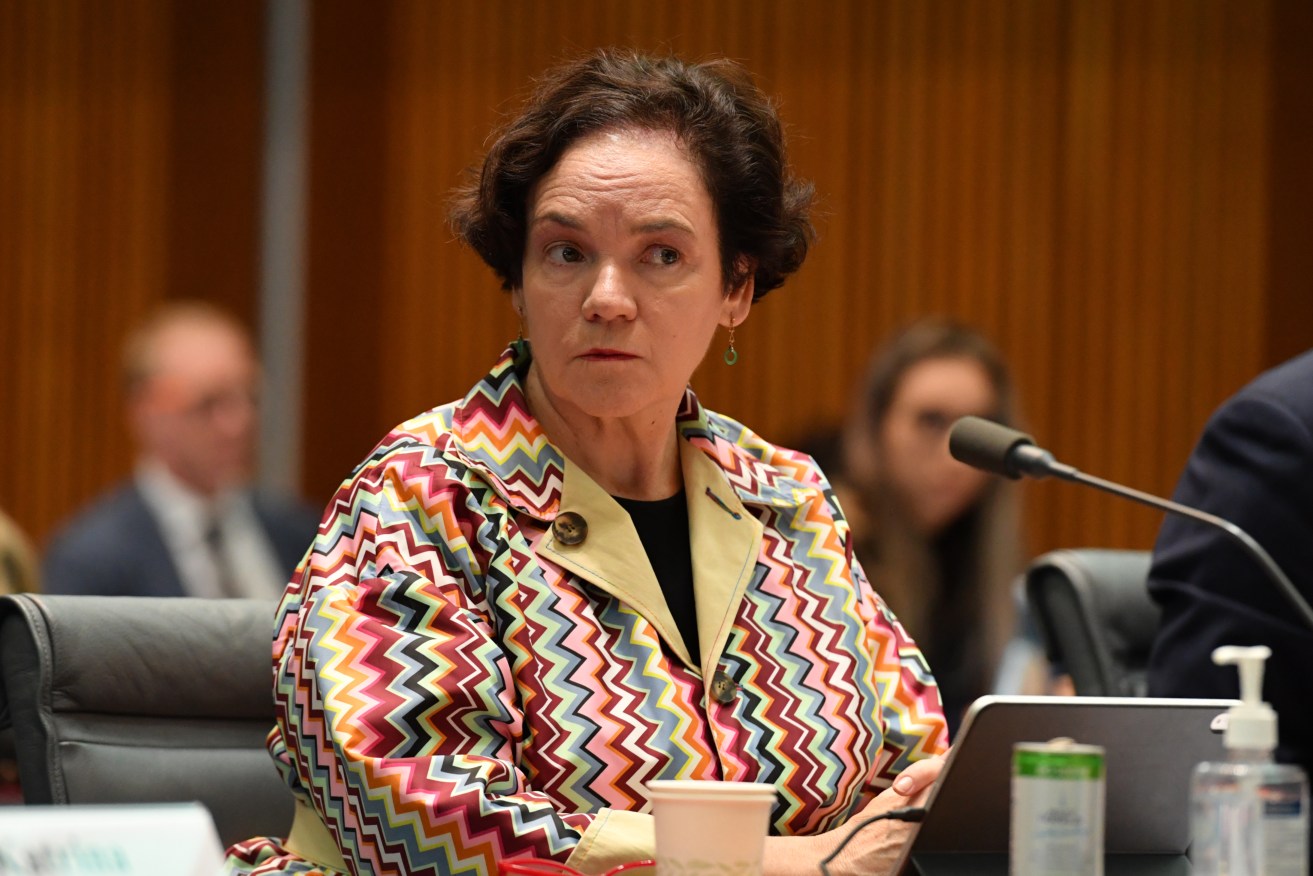Robodebt bureaucrats ‘not troubled’ by accuracy doubts raised over welfare debts
Human Services officials thought welfare recipients engaging with the system was more important than accurately calculating debts.

Department of Foreign Affairs and Trade (DFAT) Secretary and former Human Services chief Kathryn Campbell pictured during Senate Estimates at Parliament House in April 2022. (AAP Image/Mick Tsikas)
Senior counsel assisting the robodebt royal commission Justin Greggery made that claim on Wednesday, putting to the former Human Services secretary, Kathryn Campbell, that her evidence suggested she was not concerned if using “income averaging” produced faulty debt figures.
Income averaging, later ruled unlawful by the Federal Court, compared people’s reported incomes with tax office figures, meaning some welfare payments people were entitled to were ruled as debts they owed.
The royal commission is investigating how the scheme went ahead despite government departments knowing the debt calculation method was unlawful.
Greggery asked Campbell if it troubled her using income averaging would lead to the creation of non-existent debts.
She replied: “I was troubled that citizens weren’t able to engage with the system.”
The onus was put on recipients to provide their payslips to the government, so their debt could be calculated accurately.
Campbell also told the commission legal advice from the Social Services department said income averaging could be used as a “last resort”, although commissioner Catherine Holmes took issue with that position.
Holmes said it wasn’t accurate to say it was being used in that manner when recipients did not respond with their payslips, saying the department could have contacted their employers before taking that step.
The commission also heard policy advice prior to the scheme’s implementation suggested any debt calculated using income averaging would not hold up to any legal challenge as it had “an element of a reversal of proof”.
Earlier, the commission heard the Commonwealth Ombudsman had agreed to voluntarily give evidence in the third hearing block, slated for early next year.
Ombudsman official Louise McLeod is expected to give a statement to the commission.
The Ombudsman was in the commission’s sights earlier this week, when evidence revealed senior Human Services figures had been given the chance to “effectively co-write” one of their reports into the scheme.
Department figures would later rely on the report as evidence the scheme was functioning appropriately.












